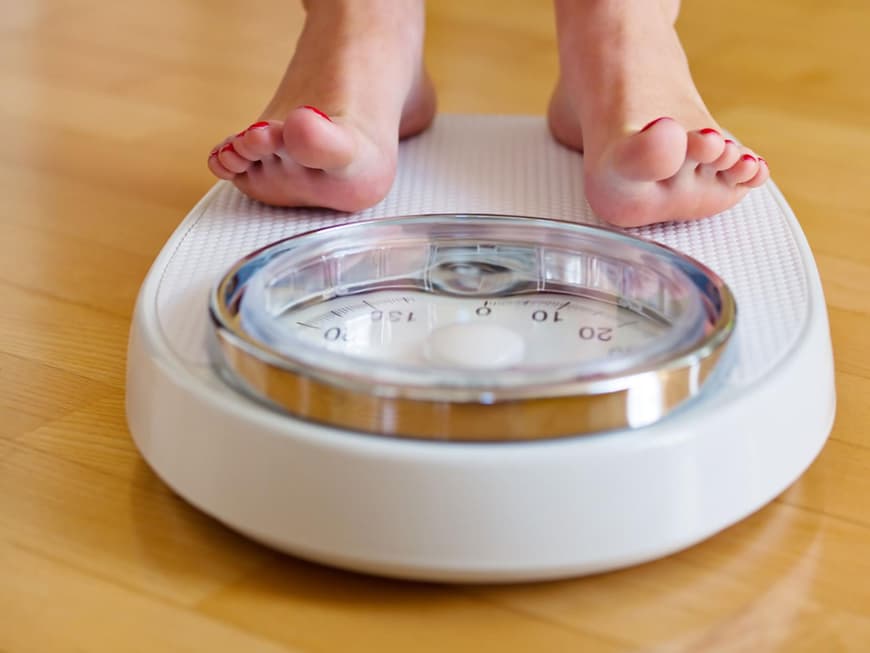Sometimes life is pretty unfair: while your girlfriend can feast to her heart's content and still fit into a size 38 for years, you can't even think about a slice of cake without putting on another pound. If the kilos stubbornly remain on your hips despite discipline and dieting, a hormonal imbalance may be to blame.
Our weight is influenced and controlled by hormones
If our hormone balance is out of balance, this has a long-term effect on our weight and can therefore be a reason why we don't lose weight. Hormones are involved in all metabolic processes. A complex interplay of different hormones such as insulin, ghrelin and leptin controls, promotes or blocks the utilization of nutrients. Evolution has programmed our organism to build up reserves for bad times or to release energy at lightning speed in emergency situations. External influences such as stress, fatigue and excess nutrients disrupt the balance and resistance can even develop.
Insulin - the best known and most important metabolic hormone
The key hormone insulin controls the transport of glucose, i.e. sugar, from the blood into the cells. There, the sugar is used to generate energy or is converted and stored. Insulin is always produced in the pancreas when we eat something containing carbohydrates - a single piece of chocolate is enough. With the right nutritional tricks and everyday tips, you can bring insulin and the other hormones that control your weight back into balance and regain control of your feel-good figure.
Insulin
If insulin levels rise quickly and frequently due to carbohydrate-containing foods, fat is not burned and cravings are fueled. Eat complex carbohydrates and fiber from whole grains and legumes instead of sugar and white flour.
Regular exercise has been proven to help keep insulin levels low and counteract insulin resistance. Important: Exercise for at least 30 to 45 minutes every two days.
Glucagon
If the body produces too little glucagon-like peptide 1 (gLP-1), the feeling of satiety is disturbed and we eat more than we actually need. The slimming hormone slows down gastric emptying and reduces the feeling of hunger. Nutrition researchers know that protein-rich foods such as fish, meat, eggs, quark and pulses help the body to produce it.
Cortisol
This vital hormone is involved in all metabolic processes. Under stress, the body releases more cortisol and craves quickly available energy, for example from sweets - the insulin level gets out of balance. Good emergency snacks and relaxation instead of stress keep the hormone in balance.
Ghrelin
The hunger hormone ghrelin regulates appetite. The more ghrelin is produced, the greater our hunger seems. Studies show that sufficient sleep and protein inhibit ghrelin production. It is best to start the day with a meal containing protein.
The antagonist of ghrelin is the slimming hormone leptin, which becomes active at night. Too little sleep low ers leptin levels and the craving hormone ghrelin is released instead.
Leptin
When the fat cells are full, they release leptin and send out satiety signals. Leptin is an appetite suppressant and regulates the feeling of hunger. However, if you are overweight, the hormone often no longer works: soft drinks, sweets and bad fats have led to leptin resistance. Instead of frying and roasting, steaming, simmering and gentle cooking are the order of the day.
Drink better: Soft drinks act like liquid sugar in the body and promote leptin resistance. Alternatives with flavor are: "Infused water" with fruit, teas with stevia or licorice root.
You might also be interested in this:
Quick diet: 20 ways to lose five kilos in no time
Don't fancy dieting? 100 slimming foods
Eat healthy and lose weight: 15 diet misconceptions you should know
Now proven:Lose weight quickly with low carb
Losing weight with weight loss pills - what's behind it?
Intermittent fasting: slim forever with method fasting
The power of hormones and their effects









